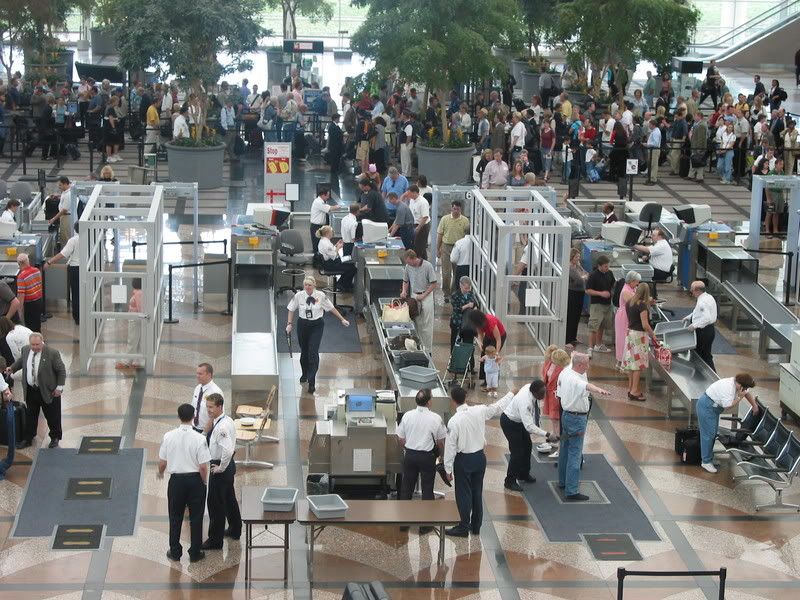
Marshals Say They Must File One Surveillance Detection Report, Or SDR, Per Month:
You could be on a secret government database or watch list for simply taking a picture on an airplane. Some federal air marshals say they're reporting your actions to meet a quota, even though some top officials deny it.
The air marshals, whose identities are being concealed, told 7NEWS that they're required to submit at least one report a month. If they don't, there's no raise, no bonus, no awards and no special assignments.
"Innocent passengers are being entered into an international intelligence database as suspicious persons, acting in a suspicious manner on an aircraft ... and they did nothing wrong," said one federal air marshal.
These unknowing passengers who are doing nothing wrong are landing in a secret government document called a Surveillance Detection Report, or SDR. Air marshals told 7NEWS that managers in Las Vegas created and continue to maintain this potentially dangerous quota system.
"Do these reports have real life impacts on the people who are identified as potential terrorists?" 7NEWS Investigator Tony Kovaleski asked.
"Absolutely," a federal air marshal replied.
7NEWS obtained an internal Homeland Security document defining an SDR as a report designed to identify terrorist surveillance activity.
"When you see a decision like this, for these reports, who loses here?" Kovaleski asked.
"The people we're supposed to protect -- the American public," an air marshal said.
What kind of impact would it have for a flying individual to be named in an SDR?
"That could have serious impact ... They could be placed on a watch list. They could wind up on databases that identify them as potential terrorists or a threat to an aircraft. It could be very serious," said Don Strange, a former agent in charge of air marshals in Atlanta. He lost his job attempting to change policies inside the agency.
That's why several air marshals object to a July 2004 memo from top management in the Las Vegas office, a memo that reminded air marshals of the SDR requirement.
The body of the memo said, "Each federal air marshal is now expected to generate at least one SDR per month."
"Does that memo read to you that Federal Air Marshal headquarters has set a quota on these reports?" Kovaleski asked.
"Absolutely, no doubt," an air marshal replied.
A second management memo, also dated July 2004, said, "There may come an occasion when you just don't see anything out of the ordinary for a month at a time, but I'm sure that if you are looking for it, you'll see something."
Another federal air marshal said that not only is there a quota in Las Vegas for SDRs, but that "it directly reflects on (their) performance evaluations" and on how much money they make.
The director of the Air Marshal Service, Dana Brown, declined 7NEWS' request for an interview on the quota system. But the agency points to a memo from August 2004 that said there is not a quota for submitting SDRs and which goes on to say, "I do not expect reports that are inaccurate or frivolous."
But, Las Vegas-based air marshals say the quota system remains in force, now more than two years after managers sent the original memos, and that it's a mandate from management that impacts annual raises, bonuses, awards and special assignments.
"To meet this quota, to get their raises, do you think federal air marshals in Las Vegas are making some of this stuff up?" Kovaleski asked.
"I know they are. It's a joke," an air marshal replied.
"Have marshals in the Las Vegas office, I don't want to say fabricated, but 'created' reports?" Kovaleski asked.
"Creative writing -- stretching a long ways the truth, yes," an air marshal replied.
One example, according to air marshals, occurred on one flight leaving Las Vegas, when an unknowing passenger, most likely a tourist, was identified in an SDR for doing nothing more than taking a photo of the Las Vegas skyline as his plane rolled down the runway.
"You're saying that was not an accurate portrayal of a potential terrorist activity?" Kovaleski asked.
"No, it was not," an air marshal said.
"It was a marshal trying to meet a quota ..." Kovaleski said.
"Yes, he was," the air marshal replied.
Strange said he didn't have a quota in the Atlanta office when he was in charge.
"I would never have done that ... You are going to have people reporting every suspicious looking activity they come across, whether they in their heart feel like it's a threat, just to meet the quota," Strange said.
Strange and other air marshals said the quota allows the government to fill a database with bad information.
A Las Vegas air marshal said he didn't write an SDR every month for exactly that reason.
"Well, it's intelligence information, and like any system, if you put garbage in, you get garbage out," the air marshal said.
"I would like to see an investigation -- a real investigation conducted into the ways things are done here," the air marshal in Las Vegas said.
Although the agency strongly denies any presence of a quota system, Las Vegas-based air marshals have produced documents that show their performance review is directly linked to producing SDRs.
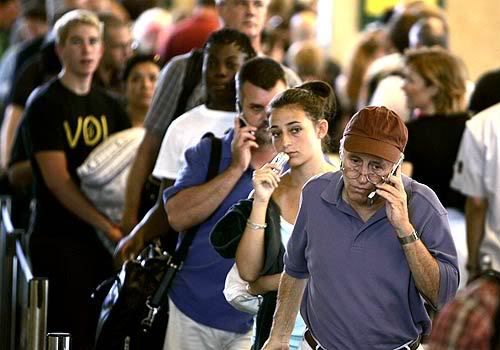
It's a slippery slope for air marshals once they begin to fudge. What's to stop them from accepting bribes, to keep a business competitor grounded by being placed on the list?
Once you're on a "no-fly"-list, you can't just board an airplane. What's left of the U.S. Constitution to stand between you and this?:
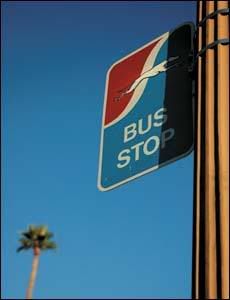
Technorati Tags: Technorati Tag, Technorati Tags, tags, categories, terrorism, air marshals, war on terror, homeland security, Patriot Act, The Constant American, Constant American



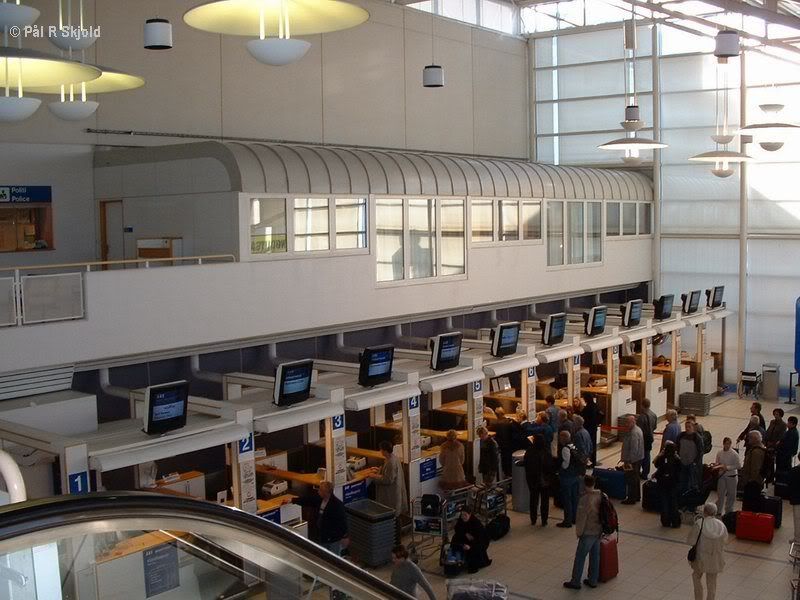
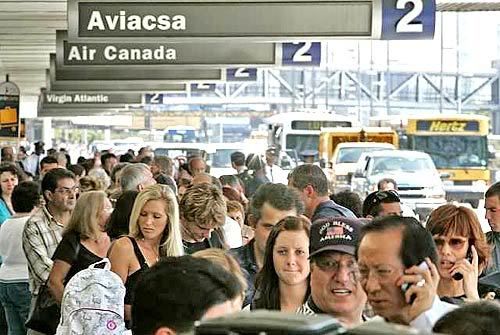
No comments:
Post a Comment